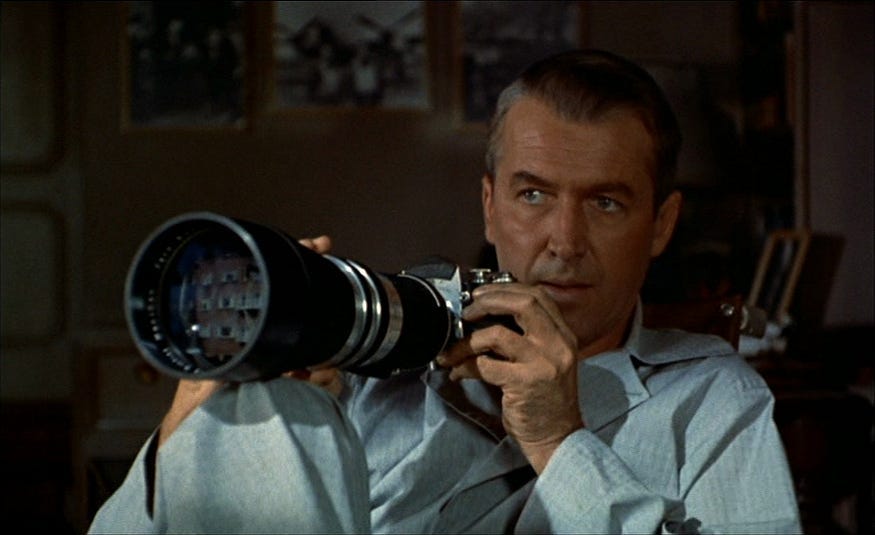Rear Window: 70 Years On
Hitchcock’s most suspenseful film remains alarmingly relevant as a commentary on voyeurism
Warning: Contains spoilers
When I was in my early teens, just before we settled down to my first viewing of Alfred Hitchcock’s classic 1954 thriller Rear Window, my father told me how he’d missed the ending when he saw the film during its original release. A longer-than-expected set of trailers and supporting material meant he had no choice but to leave ten minutes before the end, to catch the final train from Inverness back to Fort William. I was particularly horrified to learn he’d still not managed to see the ending, so this viewing — over thirty years later — was his first seeing the finale.
As for me, I was utterly gripped by what I still consider Hitchcock’s most suspenseful film. Of course, it’s great in many respects, featuring first-rate performances, a terrific screenplay from John Michael Hayes (based on a short story by Cornell Woolrich), inspired direction, and an inherent commentary on voyeurism. It remains eerily relevant in that respect, but I’ll come to that in a moment.
Keep reading with a 7-day free trial
Subscribe to The Dillon Empire: Simon Dillon on Substack to keep reading this post and get 7 days of free access to the full post archives.





